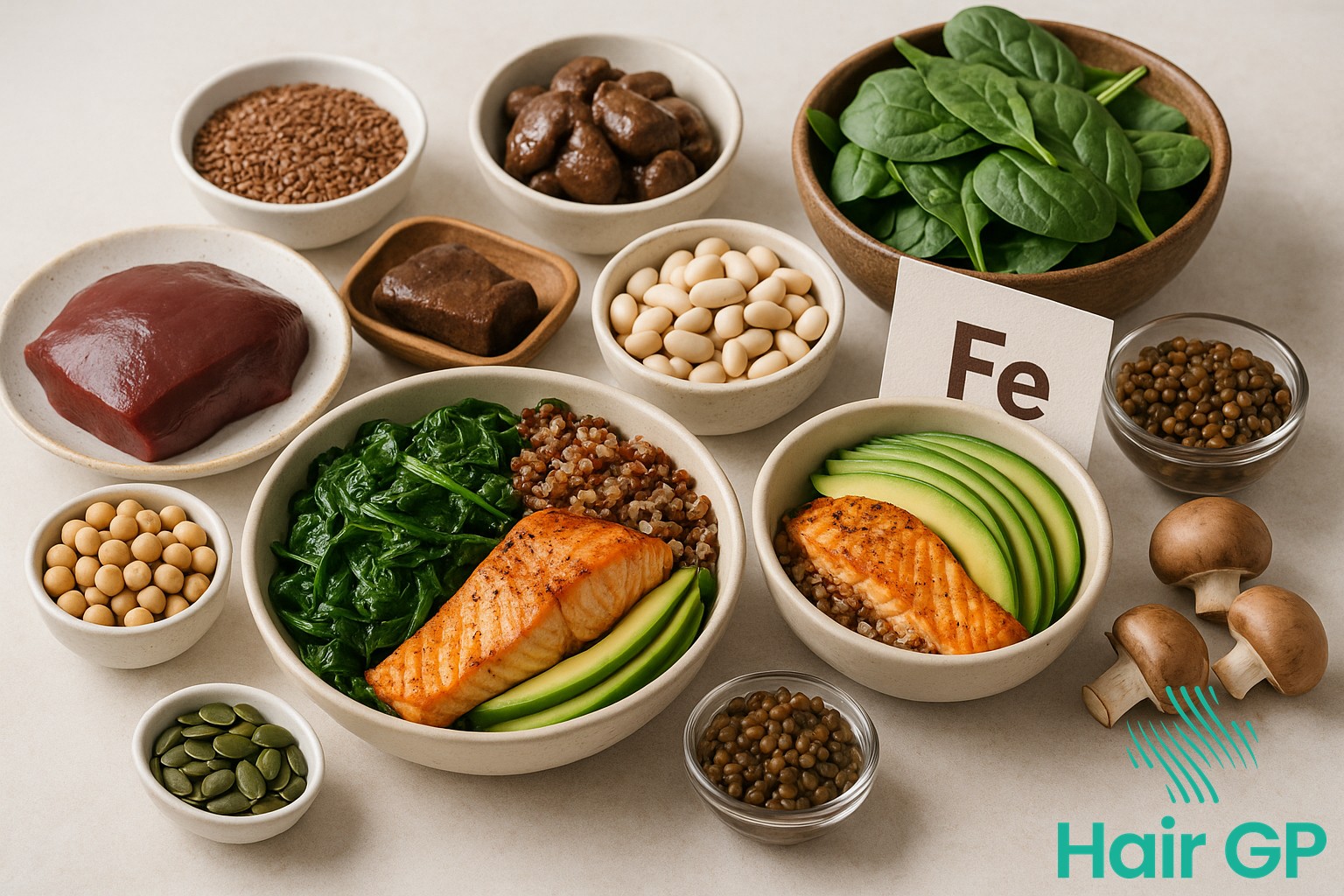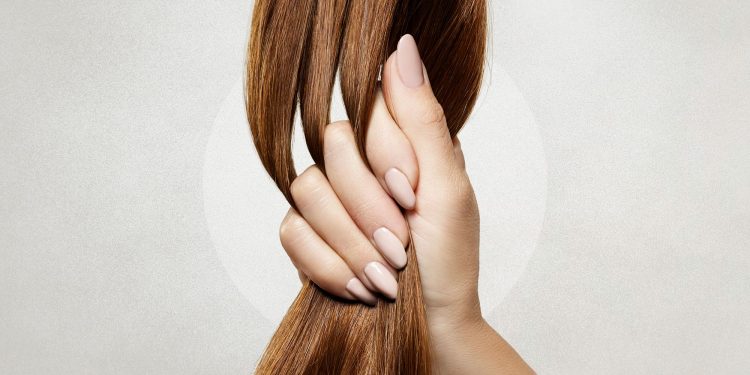When we think about healthy, shiny hair, we often imagine luxury shampoos, miraculous oils, and regular salon treatments. But, there’s one factor that is often overlooked in the pursuit of beautiful hair: your diet. In recent years, the link between nutrition and hair health has gained increasing attention. So, is hair growth really linked to what you eat? Can a balanced diet make a significant difference in the strength, thickness, and growth of your hair? Let’s delve into the science behind it.
The Hair Growth Cycle: Understanding the Basics
Before diving into how diet affects hair, it’s crucial to understand the hair growth cycle. Hair growth occurs in three main stages:
- Anagen (Growth Phase): This is the active phase where hair cells divide and grow, resulting in visible hair lengthening. The duration of this phase varies between individuals and can last anywhere from 2 to 7 years.
- Catagen (Transition Phase): This is a short transitional phase where hair growth slows, and the hair follicle shrinks.
- Telogen (Resting Phase): During this phase, hair growth stops, and eventually, the hair falls out, making room for new hair to grow.
Nutrition plays a critical role during the Anagen phase. Without the right nutrients, hair growth can be stunted or weak.
The Connection Between Nutrition and Hair Health
Hair is made primarily of keratin, a protein composed of amino acids. Just like the rest of the body, hair needs a consistent supply of nutrients to grow strong and healthy. These nutrients come from your diet, making it imperative to consume a balanced, nutrient-rich diet.

Key Nutrients for Hair Growth
Let’s take a closer look at some of the most important nutrients that contribute to hair growth:
- Protein: The Building Block of Hair
Hair is made up of 95% keratin, a fibrous protein. The body needs protein to support the growth of healthy hair. Protein deficiency can lead to thinning hair and even hair loss. Good Sources of Protein:- Lean meats (chicken, turkey)
- Fish (salmon, mackerel)
- Eggs
- Legumes (lentils, chickpeas)
- Tofu
- Iron: Oxygen to the Hair Follicles
Iron is crucial for hair growth because it helps red blood cells carry oxygen to hair follicles. A deficiency in iron can lead to hair loss, particularly in women of reproductive age. Good Sources of Iron:- Red meat (beef, lamb)
- Spinach and other leafy greens
- Lentils
- Tofu
- Fortified cereals
- Vitamins A and C: Nourishing the Scalp
Both vitamins A and C are essential for maintaining a healthy scalp. Vitamin A supports the production of sebum, an oily substance that keeps the scalp moisturized, while Vitamin C helps in collagen production, which strengthens hair and supports the hair follicles. Good Sources of Vitamins A and C:- Carrots
- Sweet potatoes
- Citrus fruits (oranges, lemons)
- Bell peppers
- Berries (strawberries, blueberries)
- Zinc: The Hair Repair Mineral
Zinc plays an essential role in hair tissue growth and repair. It also helps maintain the oil glands around the hair follicles, keeping your scalp healthy. Good Sources of Zinc:- Pumpkin seeds
- Cashews
- Chickpeas
- Shellfish (oysters, crab)
- Whole grains
- Omega-3 Fatty Acids: Hydrating Hair from the Inside Out
Omega-3s help nourish the hair follicles and keep the scalp hydrated. They can also reduce hair inflammation and prevent dryness that leads to brittle hair. Good Sources of Omega-3s:- Fatty fish (salmon, mackerel, sardines)
- Walnuts
- Flaxseeds
- Chia seeds
- Biotin: A Popular Hair Growth Supplement
Biotin, a B-vitamin, is often associated with healthy hair growth. Biotin helps the body metabolize proteins, fats, and carbohydrates, all of which are essential for hair health. Good Sources of Biotin:- Eggs
- Nuts (almonds, walnuts)
- Avocados
- Sweet potatoes
- Whole grains
- Vitamin D: Regulating Hair Follicles
Vitamin D has been shown to play a role in the creation of new hair follicles. Deficiency in Vitamin D can lead to hair thinning and loss, particularly in conditions like alopecia. Good Sources of Vitamin D:- Fatty fish (salmon, tuna)
- Fortified foods (milk, orange juice)
- Egg yolks
- Mushrooms
The Role of Water in Hair Growth
Hydration is another often-overlooked factor when it comes to hair health. Just like the rest of your body, your hair needs adequate water to grow and maintain its strength. Dehydrated hair can become brittle and break easily. Drinking enough water can help ensure that your hair remains moisturized and healthy from the inside out.
The Impact of Diet on Hair Loss and Thinning
While a poor diet can contribute to hair thinning or loss, the relationship between diet and hair loss isn’t always straightforward. Stress, hormonal imbalances, genetics, and medical conditions can all play a role in hair shedding. However, by ensuring that you’re consuming the right nutrients, you’re providing your hair with the best foundation for healthy growth.

Here’s a look at some dietary factors that can negatively impact hair health:
- Crash Diets and Extreme Caloric Restrictions:
Rapid weight loss through extreme calorie restriction can lead to temporary hair loss. The body enters a survival mode and redirects nutrients away from non-essential functions, like hair growth, to keep vital organs functioning. - Sugar and Processed Foods:
A diet high in refined sugars and processed foods can lead to insulin spikes, which may contribute to hair thinning, especially in those predisposed to conditions like polycystic ovary syndrome (PCOS). - Nutrient Deficiencies:
Deficiencies in key vitamins and minerals can impact hair health. Common deficiencies linked to hair loss include iron, zinc, and biotin. A balanced diet that includes a variety of nutrient-dense foods will help prevent these deficiencies.
Are Supplements Necessary for Hair Growth?
While getting nutrients from whole foods is the best way to support hair growth, some people may opt for supplements, especially if they have specific deficiencies. Popular supplements for hair health include:
- Biotin: Known for promoting healthy hair and nails.
- Collagen: Supports the scalp and hair follicles.
- Fish oil (Omega-3): Helps keep hair hydrated and nourished.
- Iron: For individuals with low iron levels.
- Vitamin D: Especially for people with low levels of sunlight exposure.
However, it’s essential to consult with a healthcare provider before starting any supplementation, as excessive intake of certain vitamins and minerals can have side effects.
Lifestyle Tips for Supporting Hair Growth
In addition to diet, there are several lifestyle factors that can contribute to healthier hair:
- Manage Stress: Chronic stress can lead to hair loss due to an increase in cortisol levels. Techniques like yoga, meditation, and regular exercise can help manage stress.
- Avoid Over-Styling: Excessive heat styling, chemical treatments, and tight hairstyles can damage hair follicles and lead to breakage.
- Sleep Well: Sleep is essential for overall health, including hair growth. Aim for 7-9 hours of sleep each night to allow your body to repair and regenerate cells, including hair cells.
- Regular Scalp Care: Regular scalp massages can stimulate blood flow to the hair follicles and promote hair growth. Use gentle shampoos and conditioners to avoid irritating the scalp.
Final Thoughts: Nutrition as a Key Factor in Hair Health
While there’s no magic food that will make your hair grow overnight, a healthy, balanced diet can significantly improve the quality and thickness of your hair over time. The key is to provide your hair with the right building blocks—protein, vitamins, and minerals—through nutrient-rich foods. By doing so, you’ll give your hair the best chance to thrive.
Remember, hair health is a reflection of overall health, so focus on nourishing your body, reducing stress, and adopting healthy lifestyle habits for the best results.












































